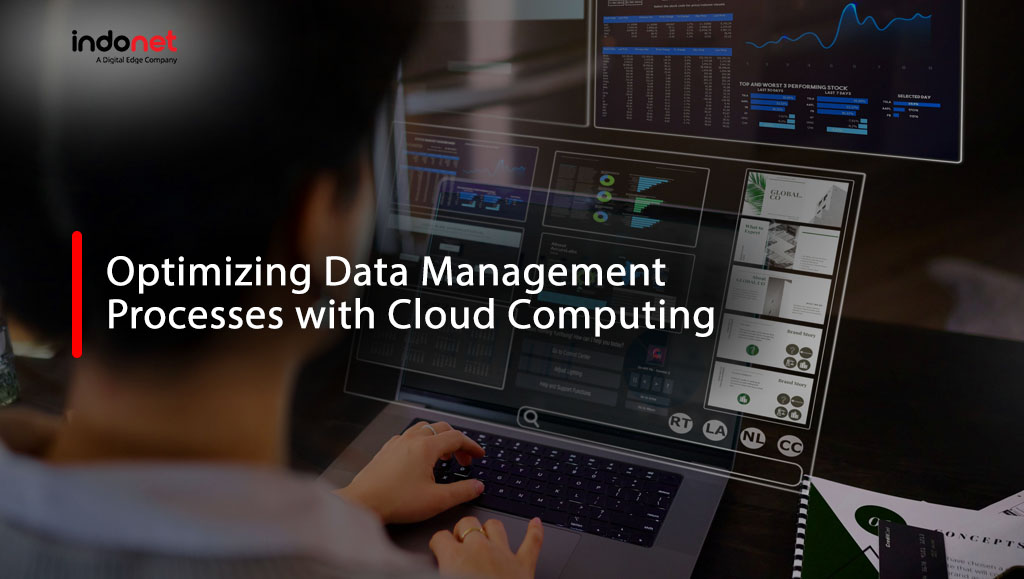Data within organizations, companies, and even individuals needs to be well-maintained and managed. This ensures that the data can be used as needed now and in the future. Cloud computing can assist in this data management process. Here is an explanation of optimizing data management processes with cloud computing.
Understanding Data Management Processes
Simply put, data management processes are defined as the processes where data is managed and organized in such a way that it can be useful for individuals, companies, or organizations now and in the future. Many parties undertake this process to maximize management within a company or organization.
This data management process typically occurs during business communication processes. Business communication that implements optimal data management can resolve issues quickly. Additionally, optimal data management processes can expedite the work of various parties involved with the data.
DAMA International’s DMBoK has its definition of data management processes. According to DAMA International’s DMBoK, data management involves the development, execution, and supervision of plans, programs, policies, and practices that deliver, protect, control, and enhance the value of data and information assets throughout their lifecycle.
The data management process is also defined as something that encompasses any relationship between a business and its data. This concept covers all corporate data subject areas and structure types to meet the data consumption requirements of all applications and business processes occurring within an organization or company.
Regular data management processes are necessary to keep data relevant and up-to-date at all times. Each process undertaken to manage data varies depending on the needs and urgency of the organization or company. Therefore, the stages vary for each organization or company.
Benefits of Data Processing in Business
- Improving Customer Relationships: One of the things every company needs to do to maximize performance and revenue is to prioritize customers. There are many ways a company can achieve this, such as conducting various activities, promotions, communications, and more for the customers. Effective data management can provide the company with information about customer interests and other critical details, resulting in a positive relationship with customers.
- Better Business Activity Performance: Improving business activity performance over time helps the company stay relevant in the industry and remain known to the public, especially customers, for the long term. One way to enhance business activity performance is by managing data effectively. Good data management helps the company understand its strengths, weaknesses, and challenges, thus optimizing its performance.
- Faster Product and Service Delivery: For companies in the e-commerce sector, faster product and service delivery to customers is influenced by optimal data management processes. In delivering products and services to customers, companies need to manage customer data well, including address details, order details, and various other aspects.
- More Effective Marketing and Sales: The effectiveness of a company’s marketing and sales strategies significantly impacts its revenue. Companies need to manage data effectively to ensure marketing and sales are conducted properly and targeted. This involves preparing detailed data and adequate infrastructure. For example, companies need to manage customer and supplier data optimally.
READ ALSO: The Importance of Using SDN for Cloud Computing
Optimizing Data Management Processes with Cloud Computing
In today’s era, there are many ways to optimize data management processes. One such way is through the use of cloud computing. This advanced technology offers numerous benefits for organizations and companies to work optimally and improve performance.
Data management using cloud computing involves managing all organizational or company data stored on one or multiple clouds using cloud-based solutions. This data management process is effective and has capabilities similar to modern local data management solutions.
The fundamental difference between cloud-based data management and other data management methods is that cloud data management software is designed to be cloud-native. This design aims to leverage underlying cloud services, such as cloud storage, and address specific cloud practices related to integrity and security.
Cloud-based data management is crucial because it has various positive effects on companies or organizations. It can simplify operations and enable organizations or companies to benefit from a centralized point in a hybrid environment with detailed control.
There are many things you can do to optimize data management processes within your company or organization. Some of these include creating strategies for good data management systems, protecting data maximally, performing regular backups, and more.
Data management strategies in a company can be created through various means. Some of these include categorizing data by type, criticality, sensitivity, and other aspects. You can also set data management goals to enhance performance.
Data must also be maximally protected. When migrating data to the cloud, ensure that each process is secure to avoid negative impacts on your company or organization.
Regular backups are necessary to prevent unwanted incidents. Regular backups can help prevent data loss, theft, or even breaches that could harm the company or organization.
Optimizing cloud-based data management processes is essential in today’s growing digital era. Maximize data management in your company with Indonet’s cloud-based data management services. Contact the Indonet team now to learn about the excellent quality offered!

